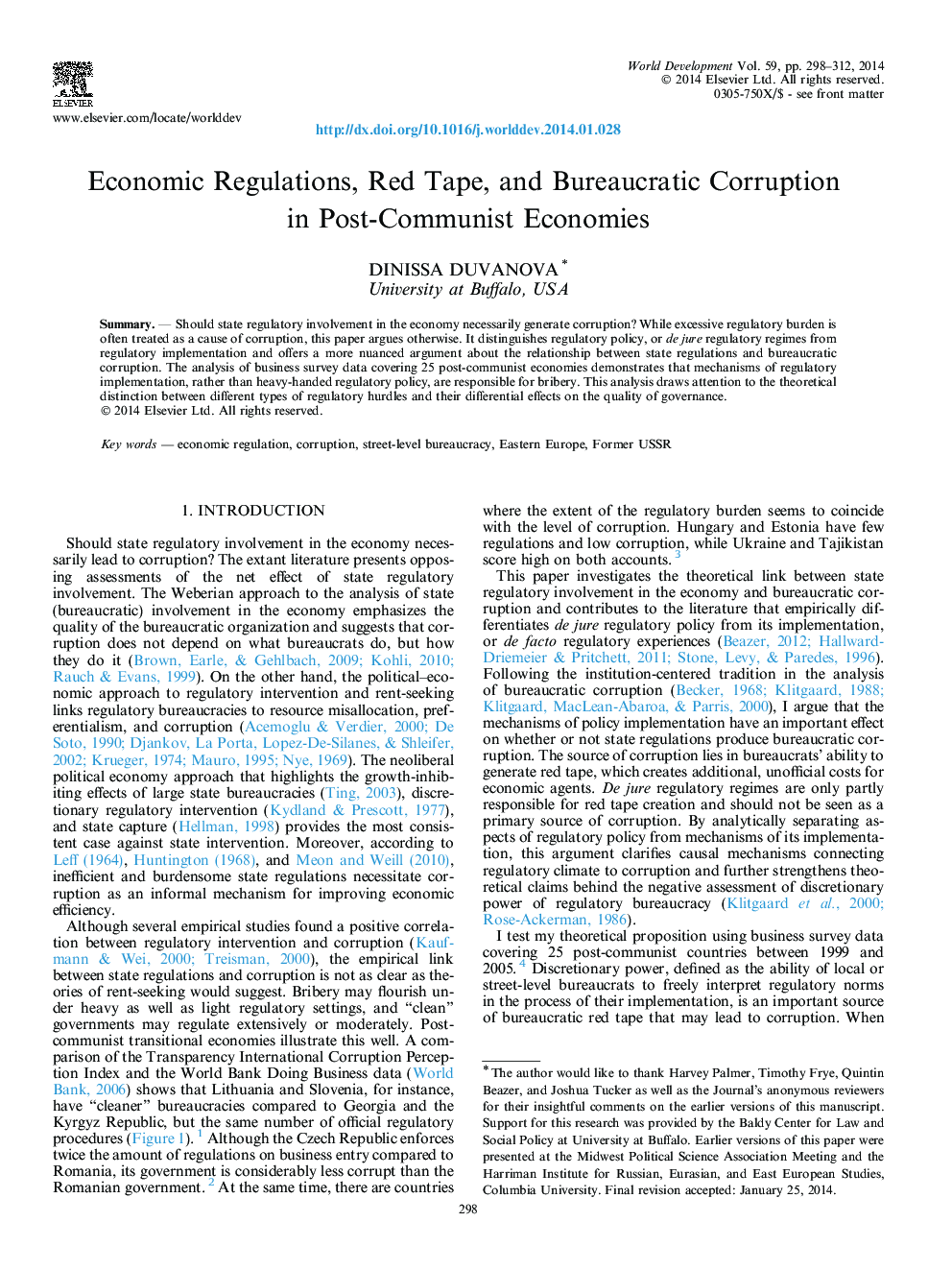| Article ID | Journal | Published Year | Pages | File Type |
|---|---|---|---|---|
| 7395195 | World Development | 2014 | 15 Pages |
Abstract
Should state regulatory involvement in the economy necessarily generate corruption? While excessive regulatory burden is often treated as a cause of corruption, this paper argues otherwise. It distinguishes regulatory policy, or de jure regulatory regimes from regulatory implementation and offers a more nuanced argument about the relationship between state regulations and bureaucratic corruption. The analysis of business survey data covering 25 post-communist economies demonstrates that mechanisms of regulatory implementation, rather than heavy-handed regulatory policy, are responsible for bribery. This analysis draws attention to the theoretical distinction between different types of regulatory hurdles and their differential effects on the quality of governance.
Related Topics
Social Sciences and Humanities
Economics, Econometrics and Finance
Economics and Econometrics
Authors
Dinissa Duvanova,
